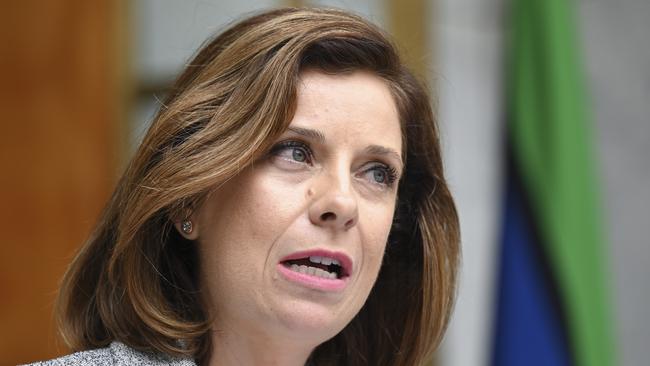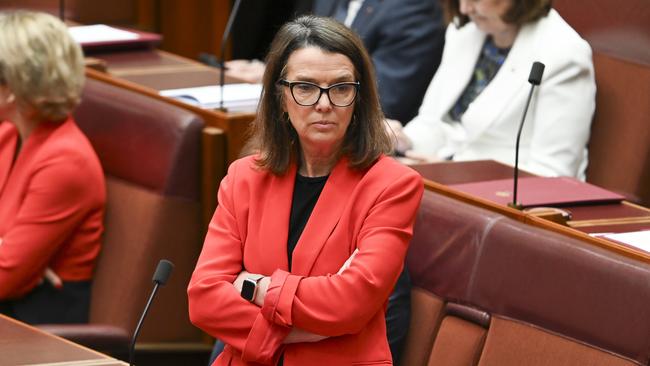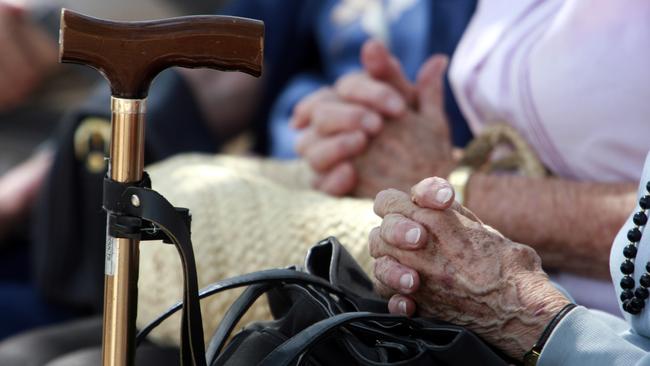Labor’s aged care bill receives Senate green light
The $5.6bn overhaul of aged care will give the sector its biggest shake-up in decades.

Laws that will lead to wealthy older Australians paying up to $13,000 more for residential aged care, while adding hundreds of thousands of new home care packages to the system, are set to pass parliament with only minor changes from the Coalition.
The $5.6bn overhaul of aged care will give the sector its biggest shake-up in decades as part of legislation to set up a new aged care act, which passed through the Senate on Thursday night and will come into effect from mid-2026.
Aged Care Minister Anika Wells on Thursday described the legislation as offering “once in a generation” reforms that would ensure Australians could spend longer at home as they aged, with a $4.3bn investment in a support-at-home program.
As part of the focus on the elderly receiving care at home, 300,000 extra home care packages will be rolled out over the next decade, starting with just over 80,000 in 2025-26.
Coalition changes to the bill agreed to by Labor before the legislation was debated in parliament included the removal of a union-endorsed “worker voice” in all residential aged care facilities, along with provisions that would have seen aged care providers facing criminal charges for breaching new standards.
The government also agreed to strike caps on cleaning and gardening – originally set at one hour a week and 18 hours a year respectively – from the legislation.

Following the opposition to its amendments to reintroduce criminal charges for guilty providers, the Greens announced they could not support the bill.
“Presented with a blueprint from the royal commission to reform a broken aged care system by putting the rights of older people at its heart, Labor has instead capitulated to the Coalition and the for-profit aged care industry with new laws that will bolster the bottom lines of providers at the expense of older Australians,” Greens older people spokeswoman Penny Allman-Payne said.
To put the sector back on a financially sustainable footing, the bill will lead to those with “sufficient means” in residential aged care paying more for non-clinical services, such as showering, haircuts and lifestyle activities, with the lifetime contribution cap lifting from nearly $80,000 to $130,000.
While supporting the bill, opposition aged care spokeswoman Anne Ruston raised concern with the fact “there seems to be an awful lot yet to be determined” about how the legislation would work.
This included a lack of clarity around transition times and how much the government would give each aged care provider to help them implement the technology changes necessitated by the bill – which some companies have estimated could be as much as $4m.
Peak bodies including the Aged and Community Care Providers Association welcomed the bill’s passing but warned the administrative challenge in implementing the sweeping reforms would be “incredibly hard” and called for clarity in the transition timeline.

The aged care bill – which will go back to the house next week in its amended form – was one of two significant pieces of legislation debated on Thursday, with Labor’s social media ban for children under 16 also tabled to the house.
Under the legislation, platforms including X, Instagram, Facebook and Snapchat will be obliged to take “reasonable steps” to prevent children under the age of 16 from holding an account, while YouTube, messaging apps, online gaming services and services with the primary purpose of supporting health and education of its users will be exempt.
The Coalition endorsed Snapchat being included in the legislation – which will come into effect at the end of next year at the earliest – as opposition communications spokesman David Coleman said it had brought despair to many families and sometimes tragedy.
“We want to ensure that very robust privacy protections are in place,” Mr Coleman said.
“And we want to ensure that social media companies must start right now to implement these laws. There is no time to waste.”
The Digital Industry Group, the peak body for Google, Apple, Meta, and TikTok, warned there were no similar laws anywhere else in the world and the unintended safety and mental health consequences, as well as the privacy and data security implications, remained unclear.
“Neither experts nor the community have been consulted on the details of the legislation being released today, and we need to hear from them before this becomes law,” DIGI managing director Sunita Bose said.
“Mainstream digital platforms have strict measures in place to keep young people safe, and a ban could push young people onto darker, less safe online spaces that don’t have safety guardrails.”
Neither Snap or Meta responded to the ban on Thursday.






To join the conversation, please log in. Don't have an account? Register
Join the conversation, you are commenting as Logout